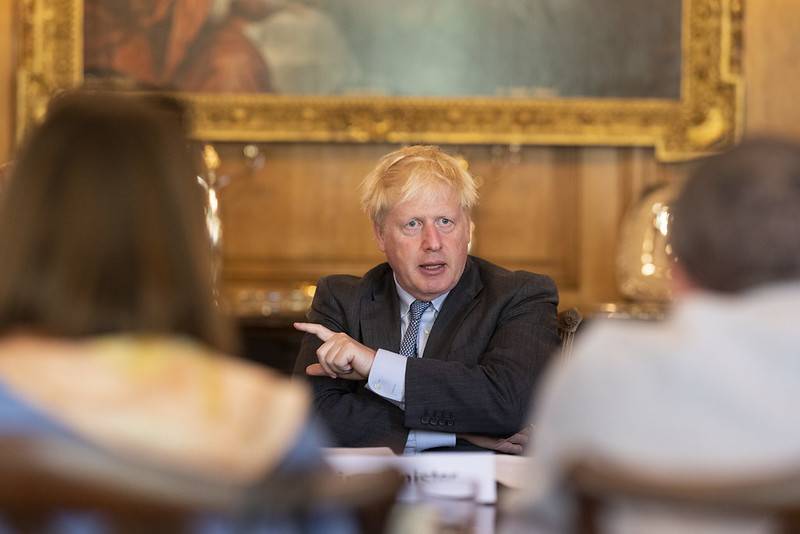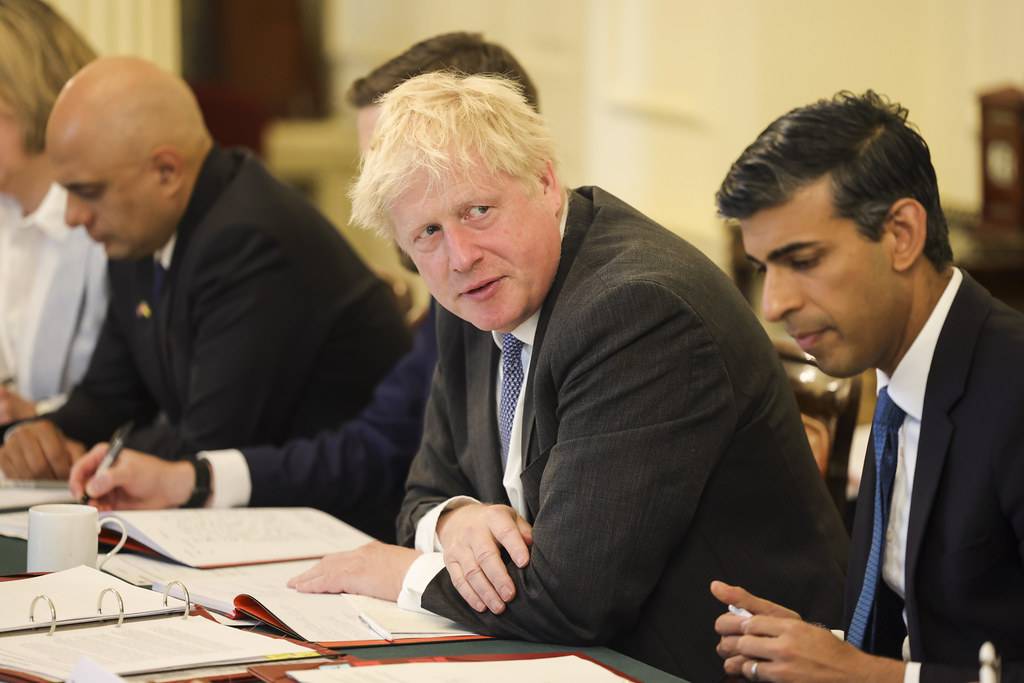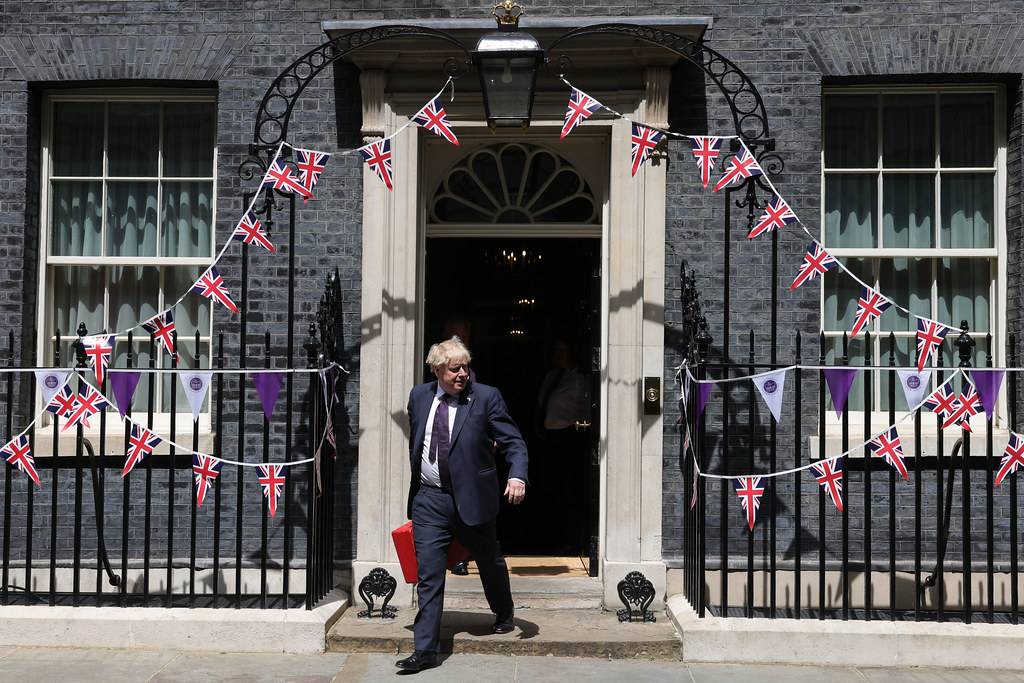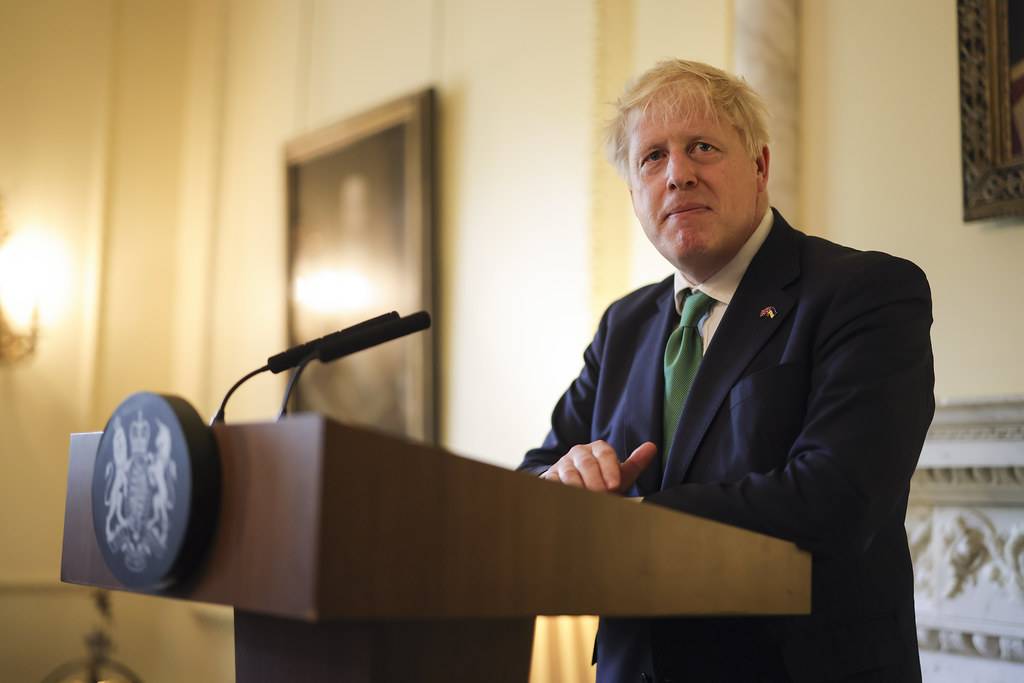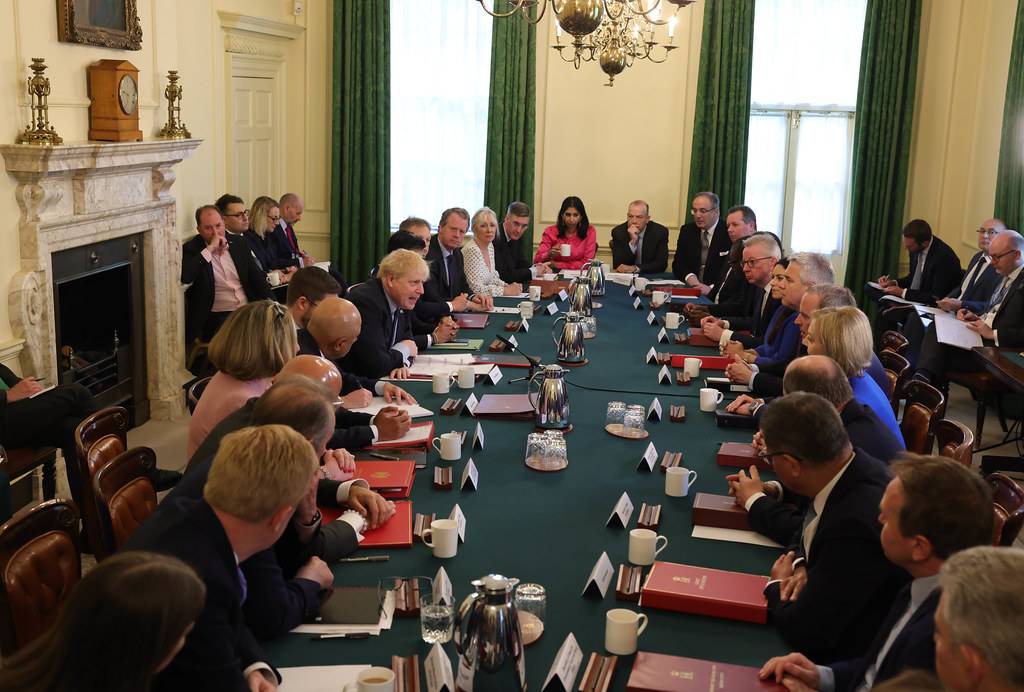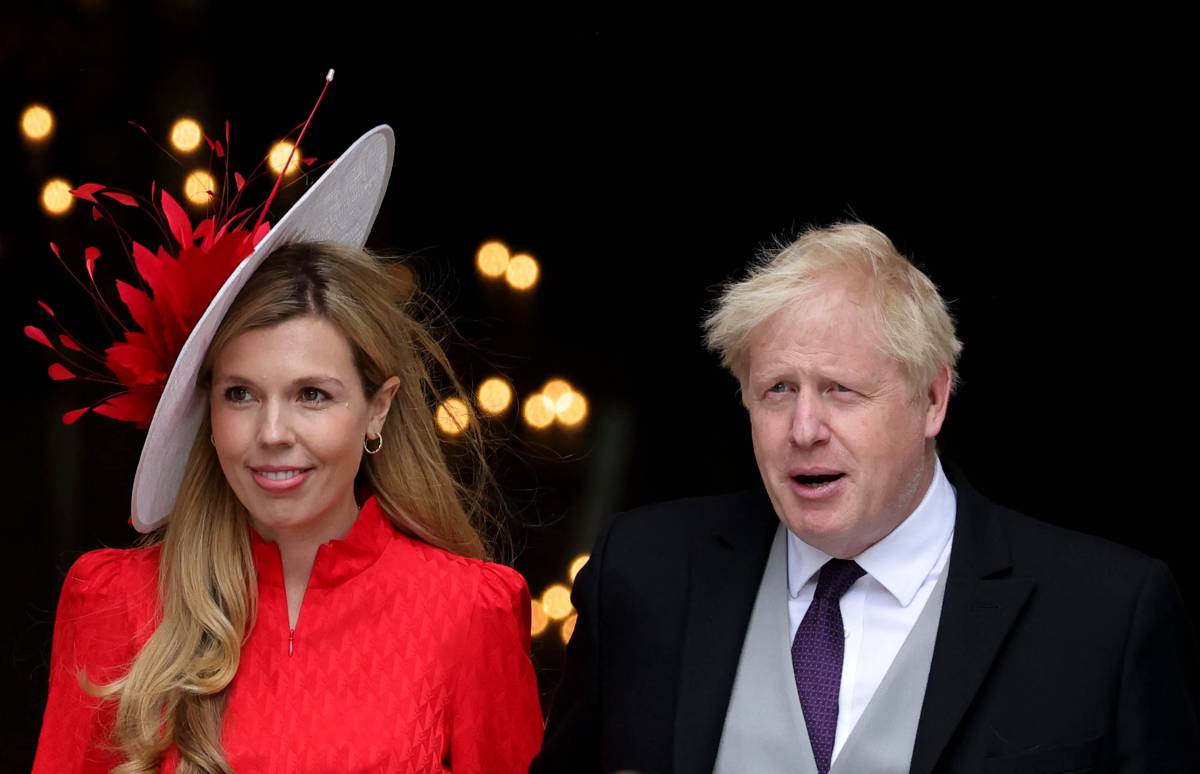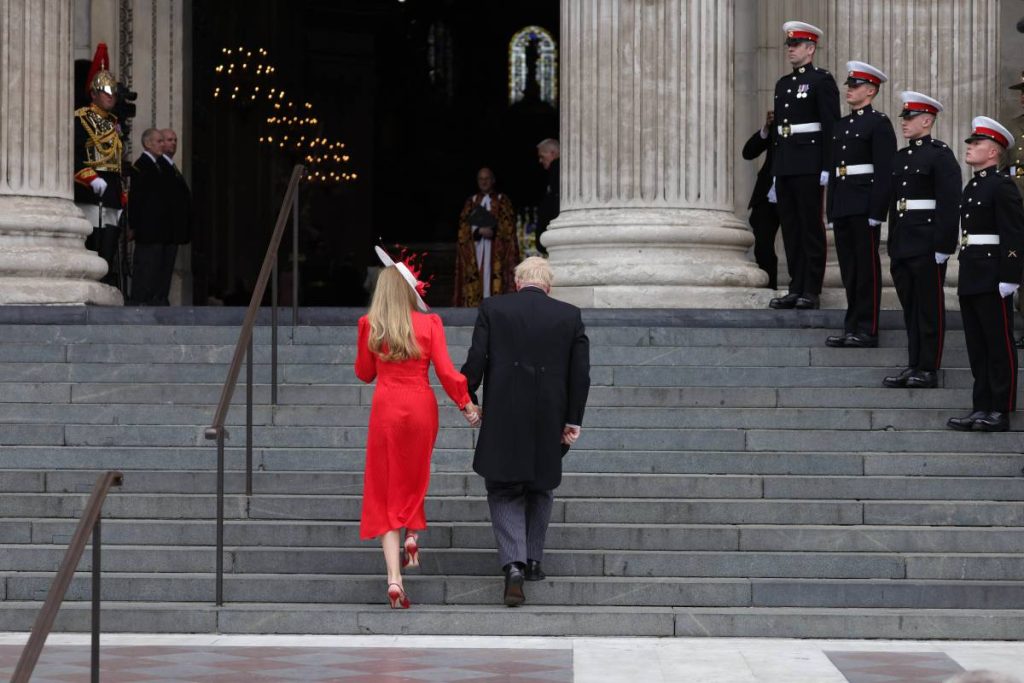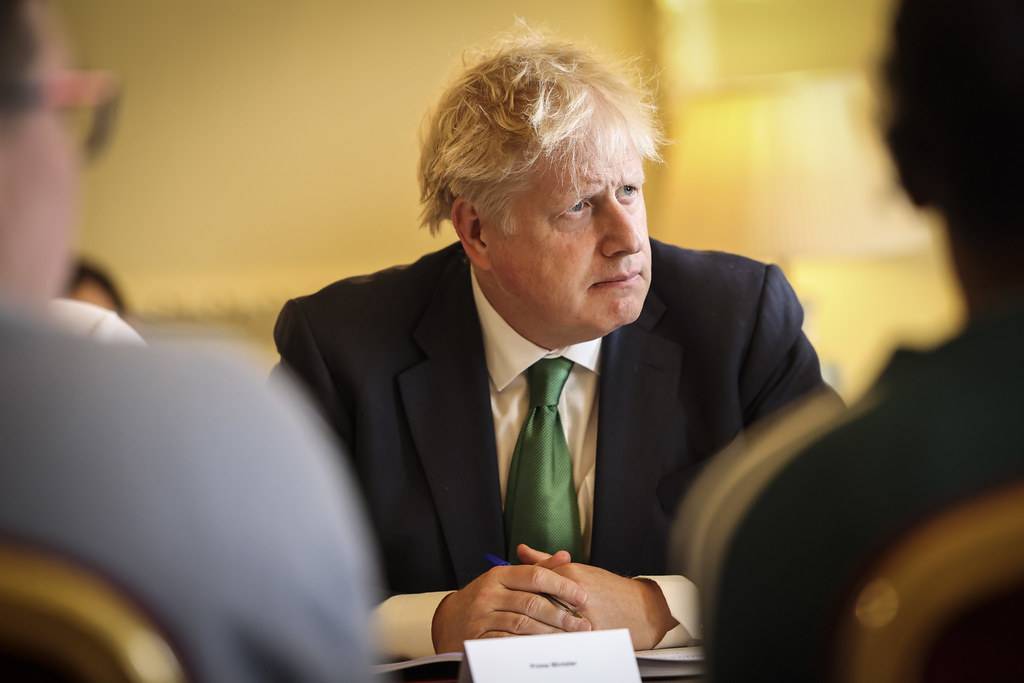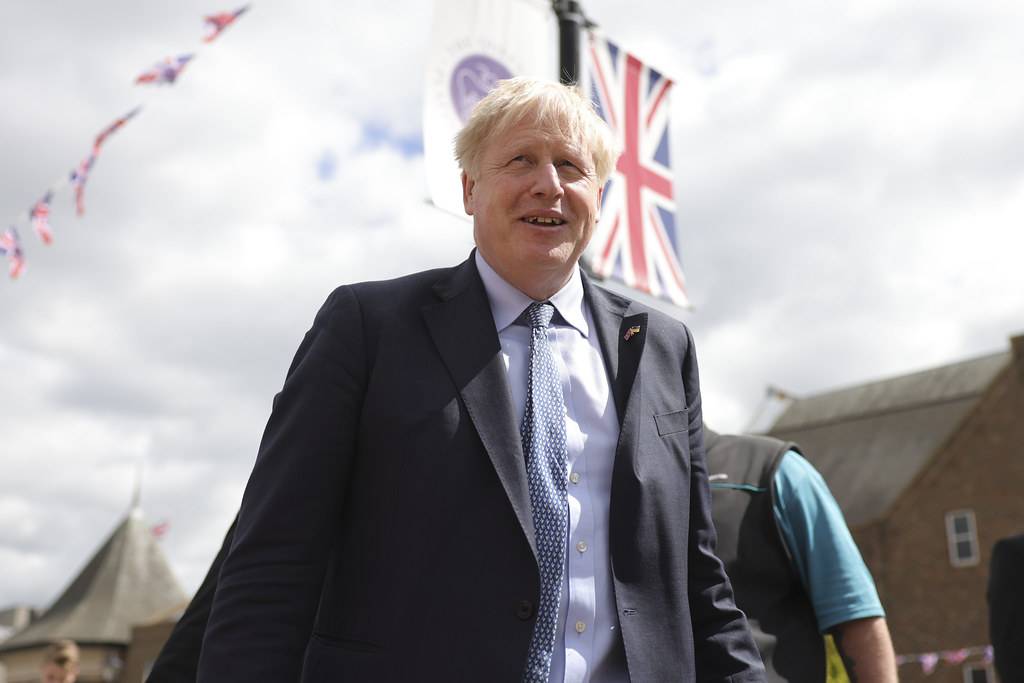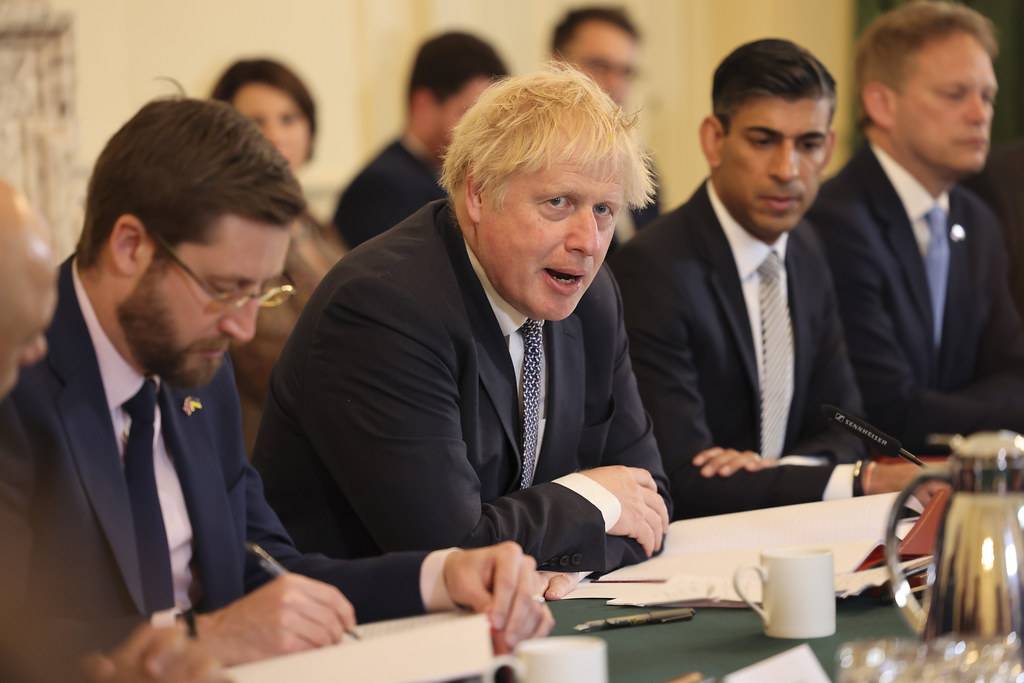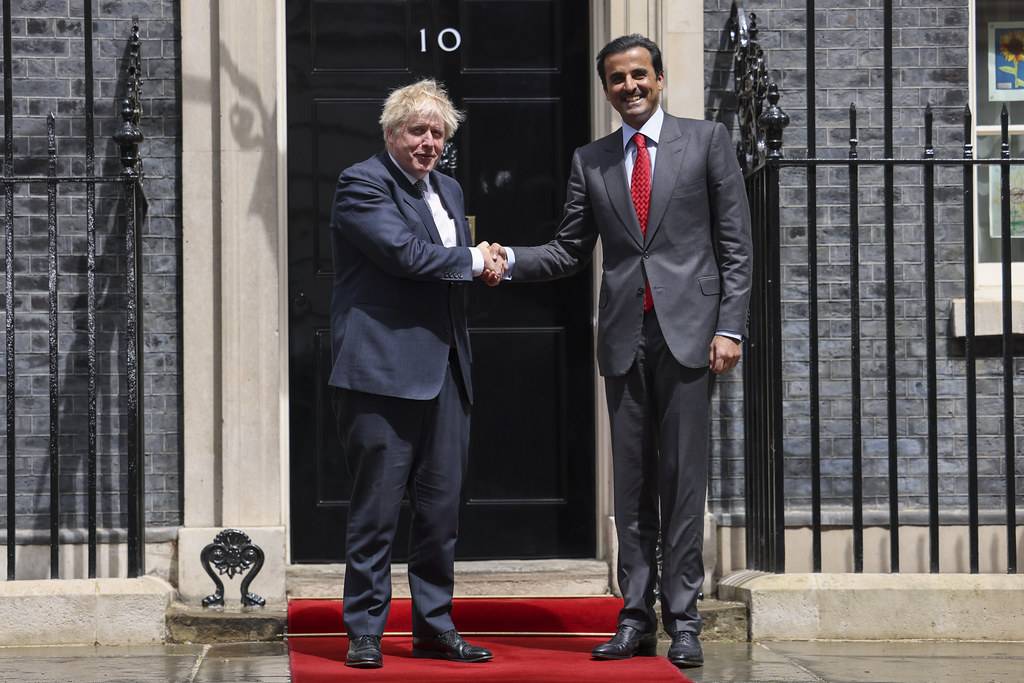Some 41% of Johnson’s lawmakers voted to remove him this month…reports Asian Lite News
Prime Minister Boris Johnson could this week lose two parliamentary seats that once illustrated his broad appeal, showing his declining popularity that could spur his party to try to find a way to oust him.
His Conservative Party are contesting two by-elections on Thursday: one in Tiverton and Honiton, a deeply Conservative corner of Devon in southwest England, and another in the former industrial area of Wakefield in northern England, which voted for his party for the first time in 90 years in 2019.
Defeat in either place may further dent Johnson’s vote-winning reputation, and see lawmakers who fear for their futures try to move against him despite giving him a reprieve by calling and losing a confidence vote against him earlier this month.
Johnson secured the biggest Conservative majority in three decades at the 2019 national election by upending conventional British politics and winning in both the Conservatives’ traditional southern heartlands and in more industrial areas in central and northern England.
But now, support for the party is fraying in both areas, and could prompt some Conservative lawmakers to try to reduce the 12-month grace period between calling confidence votes. Some 41% of Johnson’s lawmakers voted to remove him this month.
The by-elections were triggered by high-profile resignations of Conservative lawmakers – one who admitted watching porn in parliament, and another found guilty of sexually abusing a teenage boy.
In the rural market town of Tiverton, Jenny Kane, 72, a part-time yoga teacher, said she had voted Conservative, but would not do so now because of the unresolved tensions with the European Union and “partygate” when Johnson attended lockdown-breaking parties during the COVID-19 pandemic.
“I don’t think he’s done Brexit at all,” she told Reuters. “Partygate is the final straw. I’m disgusted.” Kane said she would instead vote for the centrist, pro-EU Liberal Democrats.
ALSO READ-Boris calls for compromise

